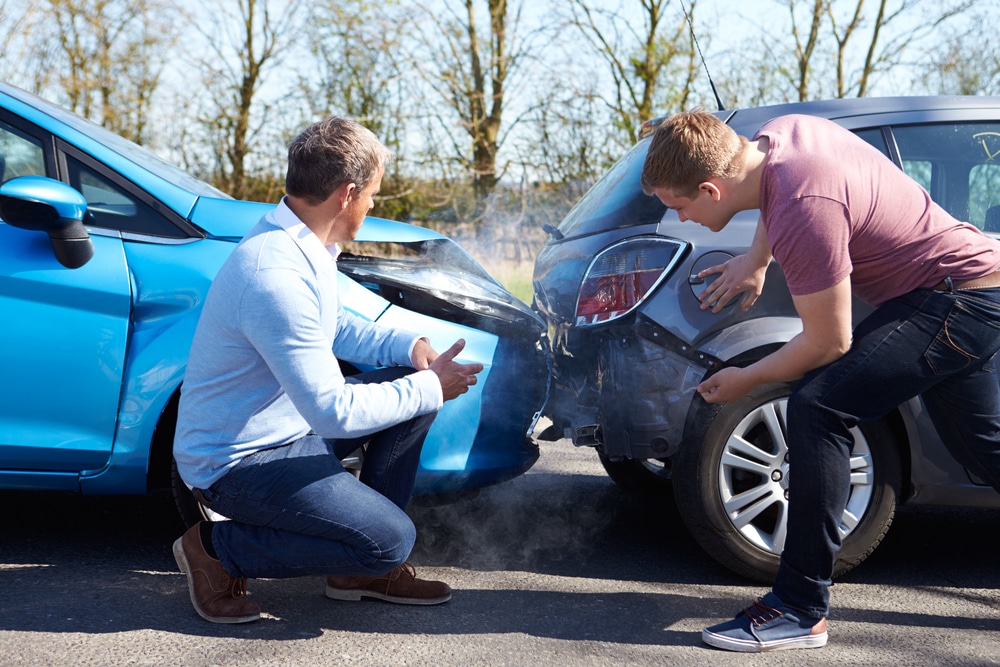Car accidents can be traumatic experiences, both physically and emotionally. Understanding the legal options available after a car accident is crucial for ensuring that victims receive fair compensation for their injuries and damages.
One important aspect to consider is determining liability, as it plays a significant role in pursuing legal action. This involves identifying who was at fault for the accident, which can be a complex process requiring investigation and evidence gathering.
Moreover, it’s essential to recognize that there are various legal options available to those involved in car accidents, such as filing insurance claims or pursuing personal injury lawsuits. Consulting with an experienced attorney can provide invaluable guidance on the best course of action based on the specific circumstances of the accident.
Understanding the statute of limitations for filing a claim is imperative, as failing to act within this timeframe could result in losing the opportunity to seek compensation through legal means. Overall, being informed about legal options following a car accident empowers individuals to navigate these challenging situations effectively and pursue just outcomes.
Types of Car Accident Lawsuits
Car accident lawsuits can encompass a variety of types, each with its unique considerations. One common type is a negligence lawsuit, where the injured party must prove that the at-fault driver failed to exercise reasonable care, leading to the accident.
Another type is a product liability lawsuit, which holds manufacturers responsible for producing defective car parts that contributed to the crash. Additionally, there are also wrongful death lawsuits, brought by the family of a deceased individual due to a car accident.
Some car accident lawsuits involve uninsured or underinsured motorist claims when the at-fault driver lacks adequate insurance coverage. These cases often require navigating complex insurance policies and legal procedures for compensation.
It’s crucial for individuals involved in car accidents to understand these different types of lawsuits and seek legal counsel to determine the most appropriate course of action based on their specific circumstances.
Understanding the Legal Process
Understanding the Legal Process can be an overwhelming experience, especially when dealing with the aftermath of a car accident. From filing a claim to navigating the complexities of personal injury law, it’s essential to grasp the intricacies of legal proceedings. Legal representation can provide invaluable support during this challenging time, offering expert guidance and advocacy throughout every step of the process.
Furthermore, understanding your options after a car accident is crucial in determining whether you can proceed with a lawsuit. Factors such as fault determination, evidence collection, and state-specific laws all play significant roles in shaping your legal recourse. By gaining insight into these key components of the legal process, individuals involved in car accidents can make informed decisions about pursuing compensation for their injuries and losses.
In sum, by delving into the nuances of the legal process surrounding car accidents and comprehending one’s options for seeking recompense, individuals can equip themselves with knowledge that empowers them to navigate this complex terrain effectively. This understanding forms a critical foundation for making informed decisions regarding pursuing legal action after a car accident.
Factors Affecting Lawsuit Eligibility
When considering the eligibility to file a lawsuit after a car accident, there are several factors that come into play. One crucial factor is the concept of fault, as it can greatly impact a person’s ability to pursue legal action.
The determination of fault is often based on evidence such as police reports, witness statements, and expert opinions, making it essential for individuals to gather as much supporting documentation as possible.
Another crucial aspect affecting lawsuit eligibility is the statute of limitations, which varies by state and sets the time limit within which a legal claim must be filed. Additionally, the extent of injuries and resulting damages also plays a significant role in determining eligibility for a lawsuit.
From medical bills and lost wages to pain and suffering, the severity of these factors can impact an individual’s ability to seek legal recourse after a car accident. Understanding these key factors is vital in deciding whether pursuing legal action is feasible following such an event.
Hiring a Personal Injury Attorney
When faced with the aftermath of a car accident, the decision to hire a personal injury attorney can be daunting. While it may seem like an added expense, choosing the best accident lawyers Ottawa can make all the difference in navigating the complexities of your case. A skilled attorney will not only provide legal expertise but also offer invaluable support during what can be a challenging and emotionally draining process.
The best accident lawyers in Ottawa are well-versed in dealing with insurance companies, gathering evidence, and understanding complex legal statutes related to personal injury claims. Their knowledge and experience can significantly increase your chances of receiving fair compensation for your injuries and losses.
A reputable attorney will handle all communication with other parties involved, allowing you to focus on your recovery without the burden of legal proceedings. When considering whether to sue after a car accident, enlisting the services of a qualified personal injury attorney is often essential for securing the best possible outcome.
Compensation and Damages Available
When it comes to compensation and damages available after a car accident, it’s important to understand the different types of losses that can be pursued. In addition to economic damages like medical expenses and lost wages, non-economic damages such as pain and suffering can also be sought. These non-tangible losses can significantly impact a person’s life following an accident, and it’s crucial to consider their inclusion in any legal action.
Furthermore, punitive damages may also be available in certain cases where the at-fault party’s actions were particularly egregious or reckless. These additional damages are designed to punish the wrongdoer and deter similar behavior in the future. Understanding the full scope of compensation and damages available is essential for anyone considering legal action after a car accident, as it allows for a comprehensive pursuit of just recompense for all losses incurred.



